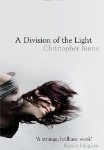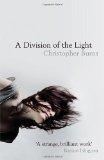Five words from the blurb: woman, robbed, witnessed, camera, changed
I am heavily influenced by endorsements from certain authors and I’d probably have avoided this book if it hadn’t received a rare endorsement from Kazuo Ishiguro. A story about an obsessive photographer didn’t appeal to me, but having read it I have to agree with Ishiguro – A Division of the Light is
A strange, brilliant work
The book begins with a woman being mugged on a quiet street. The event is witnessed by Gregory, a successful photographer. Instinctively Gregory takes several photographs of the crime and becomes obsessed by the photogenic nature of this ordinary woman. He persuades her to meet him again and over several months the pair form an awkward, but realistic relationship.
The story is quite simple, but I was captivated by the vivid imagery.
It is not the crime that excites the photographer’s attention, but a chance configuration of shape and texture – the smooth opacity of the lenses, the knotty tension in the victim’s hands, the summer clothing rubbed along the ground. These, and the dishevelled hair that screens a face he cannot quite see and that could so easily have smashed into the pavement.
Describing individual photographs is a difficult task for a novelist, but Burns made the images come to life. I could picture the beauty of Gregory’s work and grew to admire his obsessive search for the perfect image.
The author lives in West Cumbria and mentions places like Sampson’s Bratfull. I used to live in the same area and so appreciated the descriptions of the rugged countryside. But although the author is English this book doesn’t feel as though it originates from this country, it has a universal feel that is hard to explain. If pushed I’d say this book has a Japanese outlook mixed with cosmopolitan European influences. If that sounds strange, that is because it is! I haven’t read anything quite like it. This is one of those special books that is gripping and easy to read, yet stands up to deep scrutiny.
My only criticism is that all the passion revolved around the photography – I longed for the people to come alive in the same way. I was interested in what happened to the characters, but never really cared about them. In the end this was a minor problem and I thoroughly enjoyed reading this book.
The quiet, simple plot won’t be for everyone, but if you appreciate vivid writing you’ll find a lot to admire. If I was a Booker judge, I’d put this on the longlist.

.

